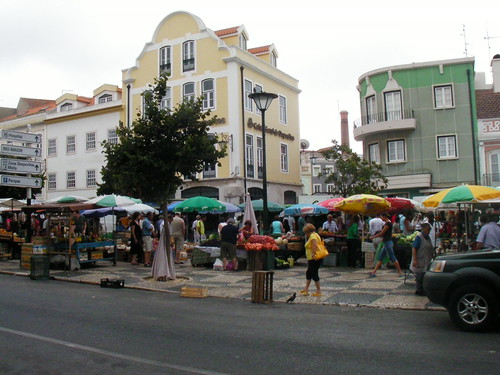For almost 2 decades, the military alliance known as NATO has been expanding to include most of Eastern Europe.? Originally founded to oppose the Soviet Union and it’s allies, NATO leaders have insisted for the last few years that it is no longer to oppose Russia, but to fight terrorism and increase security.? Meanwhile many of the countries which border Russia to the west or were once part of the Soviet Union, have become members.? Everyone except for a few, including most significantly – Russia.? Still this didn’t stir up much conversation in the West, even if it does make the Russian government very nervous.
 Meanwhile there is this very expensive and theoretical project known as missile defense, which this blog has been focusing on ever since it was founded. You remember, the missiles that would be positioned all over the globe in order to protect the United States and so-called allies from Rogue States and terrorist groups who might launch missiles against them.? This system would supposedly knock out the other missiles.? Tests have long proven either failures or inconclusive, but that hasn’t stopped the huge amounts of funding from the US congress.? Meanwhile the among the nation’s who would allow these missiles to be stationed on their soil there are, once again, Eastern European nations that go right up to the Russian border.? And yet again, it is nothing against the Russians, the US government tells us, it is merely a coincidence that missiles are installed in such places.
Meanwhile there is this very expensive and theoretical project known as missile defense, which this blog has been focusing on ever since it was founded. You remember, the missiles that would be positioned all over the globe in order to protect the United States and so-called allies from Rogue States and terrorist groups who might launch missiles against them.? This system would supposedly knock out the other missiles.? Tests have long proven either failures or inconclusive, but that hasn’t stopped the huge amounts of funding from the US congress.? Meanwhile the among the nation’s who would allow these missiles to be stationed on their soil there are, once again, Eastern European nations that go right up to the Russian border.? And yet again, it is nothing against the Russians, the US government tells us, it is merely a coincidence that missiles are installed in such places.
Now we have this pathetic situation in Georgia, which I’ll leave the explanations to more experienced sources out there. But now the threats grow louder and less concealed, the US says don’t do that and lines up with Georgia, for the first time in a long time painting Russia as the aggressor and enemy. – Immediately the issue of who is in NATO comes up, specifically by the very desperate and politically savvy Georgian president.? And then, coincidentally, the issue of missile defense is on the front page of the major newspapers.
If you are in the weapons manufacturing business, which includes the people who make missile defense, this is all very convenient.? The governments, the media, and the public, are finally falling into step with the type of scenario where you can get EVEN MORE funding for your missiles and maybe cash in as nations very easily slip back into cold war logic, which so many of them have wished to go back to anyway. (the good old days for some)
My more simple point: Pay attention not just to what is happening in Georgia. See the larger picture of who benefits and just what is being set up here.

 In the European Union this practice has long been banned. No ads with senior citizens strolling on the beach recommending that you ask your doctor about some brilliant new drug.
In the European Union this practice has long been banned. No ads with senior citizens strolling on the beach recommending that you ask your doctor about some brilliant new drug.